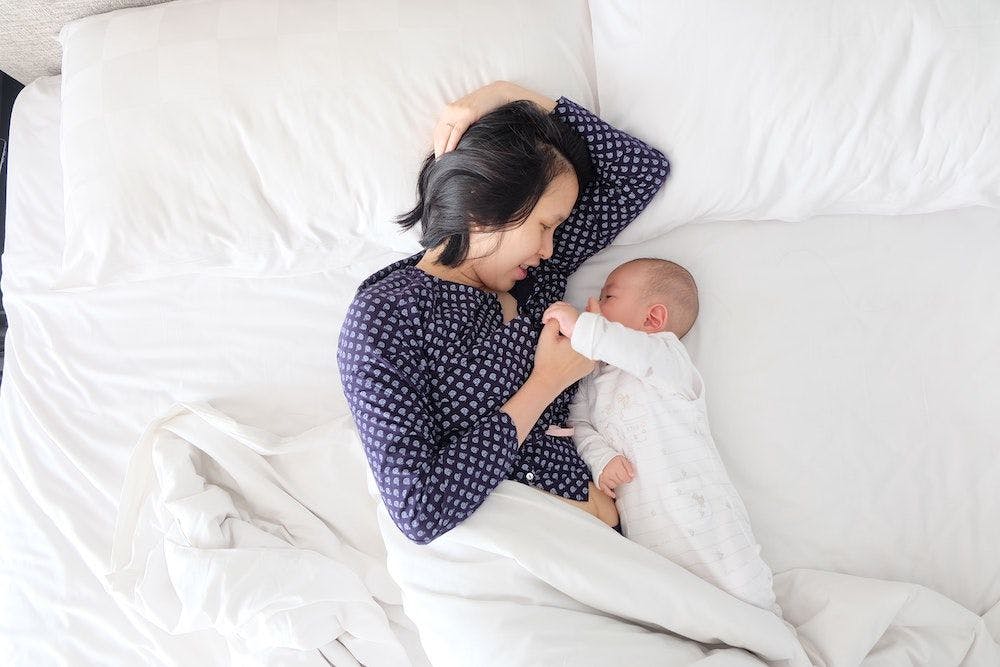Most women aren’t prepared for postpartum health, study finds
updated on Jun 4, 2021

From the physical to the emotional, a new study reveals that the majority of women did not feel prepared for postpartum health and recovery
It goes without saying that new parenthood is a time of complete emotional and physical upheaval, particularly for mothers. And now, a new study from digital pregnancy and postpartum programme MUTU System has revealed that the majority of women report feeling unprepared for postpartum health, and did not have a recovery plan in place.
The study of 3,349 UK and USA women assessed the level of postpartum preparation and awareness during pregnancy, evaluating the impact that this had on an individual’s mental health.
Researchers found that 91% of women believed that they were not given enough advice during pregnancy about how to prepare for postnatal recovery, with 90% sharing that they did not know about recovery methods for after they gave birth.
Additionally, they found that the most common postpartum symptoms were:
- Diastasis recti (the partial or complete separation of the abdominal muscles) – 73.2%
- Incontinence – 41.9%
- Postnatal depression – 35.8%
- Prolapse – 17.6%
- Hernias – 15.2%
All this considered, 76% of respondents shared that their postnatal symptoms had a direct impact on their mental health.
“These statistics highlight that there is currently a gap in maternal provisions and the sharing of information for pregnant women,” says Wendy Powell, maternal health specialist and MUTU System founder. “This frequently results in women experiencing trauma and unanticipated physical and mental health symptoms following delivery, and often leaves them feeling isolated and unaware of what is ‘normal’ and what is a cause for concern with their own body.”
It is Wendy’s fear that the pandemic has only deepened the sense of isolation that new mothers can often feel, and she highlights the additional anxieties that they have faced:
“Waiting lists for physiotherapists and consultants are becoming untenable, often a year or more, meaning new mothers simply aren’t getting access to the treatment and support they need. The impact of this is extremely profound and cannot be underplayed.
“The constraints of the pandemic have put specialists under extreme strain, which has created a bigger gap in the care system for pregnant women and new mothers. We are in need of urgent solutions to ensure women are given the urgent care they need, when they need it”.
To help tackle this, MUTU has launched its #IWishIKnew campaign, which calls for pregnant women to get the information and support they need, to ensure that they have a better chance of recovery, and address ‘feelings of regret’ that women face over the things that they ‘wish they had known’.
If you are struggling and need to talk to someone, connect with a counsellor using counselling-directory.org.uk

